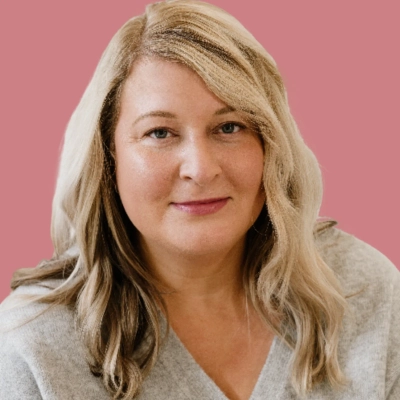Burnout can affect anyone, but there are effective strategies to combat it. We asked industry experts to share one piece of advice they would give to someone who is feeling overwhelmed or burned out in their career. Discover steps you can take to prioritize your well-being and find sustainable success in both your personal and professional life.
- Recalibrate Your System for Sustainable Success
- Reclaim Authority Over Your Day
- Restructure Daily Schedule for Balance
- Optimize for Peace and Energy
- Schedule Well-being as Non-negotiable
- Pause and Realign for Career Health
- Invest in Values-Aligned Living
- Prioritize Recovery and Set Clear Boundaries
- Cultivate Work-Life Harmony Through Transitions
- Keep Moving with Controlled Decompression
- Disconnect and Engage in Enjoyable Activities
- Explore Passion Projects as Side Hustles
- Greenlight Yourself on Your Terms
- Develop Authentic Intelligence Through Small Steps
- Take Active Time Off and Prioritize Sleep
- Batch Work and Establish Non-negotiable Boundaries
- Build a Network as Your Burnout Lifeline
How to Deal with Burnout: Advice from 17 Professionals
Recalibrate Your System for Sustainable Success
If someone is overwhelmed or burned out in their career, it is a good idea to talk to their manager about workload, deadlines, and priorities, because these factors are what typically lead to burnout. Perhaps work can be scaled back, re-prioritized, and some type of agreement can be made regarding daily work schedule and expectations on projects/assignments to ensure it is reasonable for all parties involved. Furthermore, the individual should take time for themselves each day by doing something that makes them happy, as well as resetting and taking breaks throughout the day to best focus.
 Megan Dias
Megan Dias
Career Services Coach, Parsity
Reclaim Authority Over Your Day
If you’re feeling burned out, overwhelmed, or like you’re constantly sprinting but getting nowhere — it’s not a sign of failure. It’s a sign that your system, not your ambition, needs recalibration. I’ve been there. Building something meaningful — especially as a founder, freelancer, or high-performer — can make burnout feel like a badge of honor. But it’s not. It’s a warning light.
What helped me shift wasn’t another productivity hack or a better morning routine. It was asking a deeper question: What do I actually want my days to feel like? I realized that I wasn’t chasing freedom — I was replicating the same pressure I once tried to escape. And that realization changed everything.
Start by giving yourself permission to pause. Not a sabbatical. Not a retreat. Just space. Even an hour. In that space, get brutally honest with yourself: Is this path lighting you up, or is it draining you dry? Too many of us power through burnout, thinking success will eventually “make it worth it.” But sustainable success doesn’t come from burnout — it comes from alignment.
Here’s what helped me find that alignment: I redefined success around energy, not output. I stopped glorifying hustle and started honoring rhythm. I structured my business to run on what I call “high-impact minimalism” — a strategy we now use at my agency, Bamboost, to help founders build lean, purposeful brands without sacrificing their health or sanity.
And here’s the truth: saying “yes” to yourself sometimes means saying “no” to expectations you never agreed to in the first place. If you’re overwhelmed, your nervous system is trying to protect you. Listen. That’s not weakness. That’s wisdom.
At the core of it, prioritizing your well-being isn’t just self-care — it’s self-leadership. The most powerful CEOs and creatives I know aren’t the ones doing the most. They’re the ones who know what not to do — and who’ve built systems that let them breathe.
So if you’re burned out, know this: You’re not alone. You’re not broken. And you’re not behind. You’re just being invited to rewrite the rules. Start with your own.
 John Mac
John Mac
Serial Entrepreneur, UNIBATT
Restructure Daily Schedule for Balance
One powerful piece of advice I give to clients facing burnout or overwhelm: Radical self-care starts with reclaiming your decisions.
Overwhelm is often a signal that you’ve outsourced too many of your choices — saying yes when you meant no, prioritizing others’ expectations over your own needs, or constantly reacting instead of consciously choosing. But here’s the good news: if overwhelm is self-created, it can also be uncreated.
Before you take any drastic step, take a hummingbird’s perspective: zoom out and ask yourself if the situation is really as serious as it feels. Most of the time, it’s not. When you rise above the moment and look with a bit of distance, you’ll often see what’s solvable, what’s not yours to carry, and where your choices actually lie.
You don’t need to quit your job or take a sabbatical to shift this. Start by creating one sacred boundary that protects your energy — and honor it fiercely. This could be a no-meeting morning, a walk in silence before opening your inbox, or an evening with your phone in another room. The content doesn’t matter nearly as much as the act of reclaiming authority over a part of your day.
Radical self-care is not about bubble baths or escaping to Bali. It’s about building micro-habits that remind your nervous system: I am safe. I am in charge. I can choose. The moment you start doing this consistently, your system stops bracing for the next wave and starts returning to equilibrium.
You’ll begin to notice: you don’t need more time — you need more alignment. And that begins by giving yourself permission to pause, recalibrate, and lead your life — including your work — from the inside out.
 Regina Huber
Regina Huber
Transformational Leadership Coach, Speaker, Author, CEO, Transform Your Performance
Optimize for Peace and Energy
I work closely with entrepreneurs and professionals who are navigating burnout. One piece of advice I often share is this: instead of jumping straight to a vacation or quick fix, pause and ask yourself, “What would I need to change in my daily or weekly schedule to feel more balanced?” Burnout recovery isn’t about escape. It’s about restructuring.
That change might look like fewer meetings, more focused work time, or additional support. The next question to consider is, “Is that kind of shift possible in my current role or environment?” These reflections can clarify whether your burnout is circumstantial or systemic and help guide you toward a more sustainable path forward.
 Lauran Hahn
Lauran Hahn
Founder and Clinical Director, Mindful Living Counseling Orlando
Schedule Well-being as Non-negotiable
If you’re feeling burned out or overwhelmed in your career, you’re not broken. It’s a sign that something needs to shift. I’ve been there myself, and what helped me was stepping back and asking one simple question: What actually matters to me right now?
A lot of burnout comes from chasing goals that no longer align with who we are. Or from saying yes to everything and forgetting to leave room for ourselves.
Here’s what I recommend:
1. Do a task audit – Write down everything you’re doing for a few days. Be brutally honest. What drains you? What energizes you?
2. Reconnect with your “why” – Not every job needs to be your passion, but it should at least support the kind of life you want. If it doesn’t, it’s time to rethink things.
3. Protect your time – Start small. Say no to one extra task. Block 30 minutes for yourself. You don’t need a full reset overnight, but you do need to start protecting your energy.
4. Focus on fewer, better things – Whether it’s fewer clients, fewer meetings, or fewer side projects, trimming the noise makes space for clarity.
5. Talk to someone – Don’t keep it all in your head. A friend, a coach, or even a journal can help you process things and make better decisions.
 Peter Ngo
Peter Ngo
CEO, Sydney SEO Company
Pause and Realign for Career Health
I’d tell them this: Burnout isn’t a sign that you’re weak — it’s often a sign you’ve outgrown a version of your life or business that no longer fits. I’ve been there, building at full speed until my body — and identity — said “enough.” The real shift came when I stopped optimizing for productivity and started optimizing for peace, alignment, and energy.
If you’re overwhelmed, start small. Pause the pressure to fix everything. Reclaim your mornings. Set aside one hour a day for yourself — even if it’s just ten minutes at a time. Audit what’s draining you and what’s giving you momentum. Then, build a new path around those truths. Sustainable success isn’t about doing more — it’s about doing what actually matters in a way your nervous system can handle.
 Kristin Marquet
Kristin Marquet
Founder & Creative Director, Marquet Media
Invest in Values-Aligned Living
One small change that can make a huge difference is to treat your well-being as a non-negotiable appointment on your calendar — right alongside that big client call or project deadline. When we’re overwhelmed, our instinct is to lean into work even harder, which only fuels burnout.
Instead, I recommend scheduling break periods each day: one in the mid-morning and one in the mid-afternoon. During those breaks, step away from your screen and do something restorative — whether that’s a guided breathing exercise, a quick walk outside, or simply closing your eyes and checking in with your body.
Next, conduct a boundary audit. Notice one pattern that drains you — such as back-to-back meetings, evening email checks, or unclear expectations — and set a small boundary this week. Maybe it’s “no meetings before 9 AM,” “no notifications after 6 PM,” or “requesting a written agenda before I accept any new calls.” These small boundaries protect your energy and create pockets of calm.
Finally, reconnect with your why. At week’s end, spend ten minutes journaling these two questions:
“What part of my work this week energized me?”
“What left me feeling depleted?”
This practice isn’t about judgment — it’s about gathering data so you can lean into projects and routines that light you up and gently course-correct away from what drains you. Sustainable success isn’t about working harder; it’s about working smarter — and kinder — to yourself.
 Angela Ficken
Angela Ficken
Psychotherapist and Entrepreneur, Progress Wellness
Prioritize Recovery and Set Clear Boundaries
Burnout doesn’t just show up overnight — it builds quietly, often disguised as “just a busy season” or “part of the job.” But left unchecked, it can derail even the most passionate professionals. We regularly support clients at this exact crossroads: exhausted, stuck, and unsure of how to move forward without compromising their health, income, or identity.
If you’re feeling overwhelmed in your career, the first and most important piece of advice is this: Pause — don’t push through. Modern work culture often glorifies endurance.
Take a step back to assess not just your workload, but the why behind your burnout. Are you overwhelmed due to toxic expectations? Lack of purpose? Mismatch between your strengths and your role? The root cause determines the remedy.
Here are a few actionable steps to prioritize your well-being and carve a more sustainable path forward:
Conduct a “career health check.” List what gives you energy and what drains you at work. This can reveal misalignments between your values, strengths, and environment.
Rebuild your non-work identity. Burnout often erodes our sense of self outside the office. Reconnect with hobbies, people, and places that ground you.
Set micro-boundaries. You don’t have to overhaul your life overnight. Start by turning off work notifications after 7 PM, or blocking out one break per day just for yourself.
Talk to someone — especially a neutral, trained coach. Venting to friends can help in the moment, but a coach can help you map out a long-term recovery and career redesign.
One of our clients, Amira, came to us after years in a high-stress corporate marketing role. She felt guilty even thinking about quitting — it paid well, and she had “worked so hard to get here.” But she was burned out to the point of physical symptoms. Through coaching, Amira discovered that her deepest driver wasn’t marketing — it was mentoring. She loved leading interns and creating people-first strategies. Today, she’s a certified leadership development consultant, working fewer hours with more purpose. Her burnout wasn’t a dead end — it was a redirection.
Burnout doesn’t mean you’re weak or failing — it’s often a sign you’ve outgrown your current role or rhythm. The most compassionate, powerful thing you can do for yourself is pause, reflect, and realign. We specialize in helping professionals like you reclaim clarity, confidence, and a career that works for your life — not against it.
 Miriam Groom
Miriam Groom
CEO, Mindful Career Inc., Mindful Career Coaching
Cultivate Work-Life Harmony Through Transitions
Many people wrongly attribute burnout to weakness or feel a sense of shame at being overwhelmed. This leads them to put their heads down, push harder, and grind more. This is the last thing that our bodies need. Our bodies send us signals, and it is our job to listen to them.
Burnout or overwhelm is an alarm signal that something is not in alignment. For a sustainable career, it is important that we address that alarm. As well as a signal, it is an opportunity to optimize motivations, routines, and values to build a life that is fulfilling and sustainable.
I ask clients experiencing burnout to take some time to slow down and listen to what their bodies and brains are telling them. It may be simply a need for more rest, better nourishment, or improved communication. But it may be a more fundamental rupture in the balance between career and what is important to us. By completing a values identification exercise and identifying what is important to us, we can then measure how our career aligns with those values.
If I identify that community, health, and prosperity are important to me, then it makes sense that the grueling solo project I’ve undertaken on a pro bono basis is leaving me with a sense of overwhelm. If I value learning, impact, and balance, but I find myself stuck in repetitive tasks with little room for growth, working long hours without seeing meaningful outcomes, it’s no wonder I feel exhausted.
Living in accordance with our values — in our personal and work lives — is the single biggest investment we can make in our wellbeing. Feeling overwhelm or burnout can be a wonderful sign that we need to make this investment and explore what is important to us.
 Gayle Clark
Gayle Clark
Licensed Clinical Social Worker, A Braver Space LLC
Keep Moving with Controlled Decompression
If you’re feeling overwhelmed or burned out in your career, my top advice is to prioritize structured recovery time and set clear boundaries. Some steps to make that happen include:
- Stepping back and honestly assessing your workload — burnout often stems from chronic overextension and lack of rest.
- Taking regular breaks, using your paid time off, and not hesitating to request mental health days; these are as vital as sick leave for long-term well-being.
- Openly communicating with your manager about your stress levels and workload — transparency helps foster support and can lead to necessary adjustments.
- Finally, reconnecting with your sense of purpose at work and investing in activities outside your job that replenish your energy.
By protecting your time, voicing your needs, and making well-being non-negotiable, you’ll find a more sustainable and fulfilling path forward.
 Vijay Sairam
Vijay Sairam
Founder & Educator, Remote Jobs Central
Disconnect and Engage in Enjoyable Activities
If you are feeling burned out in your career, you can always have a fun side hustle coaching in an area you love. Do you enjoy sourdough? You can coach in this! Do you enjoy organizing or cooking? This outside fun side hustle can help to make work feel less heavy and provide you with work you are inspired by.
 Dielle Charon
Dielle Charon
Business Coach, For the 23%
Explore Passion Projects as Side Hustles
As someone who has experienced boardroom burnout and found my way to sustainable success, I’ve learned that the traditional concept of “work-life balance” is actually a myth that sets us up for failure. Instead, I focus on work-life harmony — a more fluid approach that honors all dimensions of our lives without the pressure of perfect equilibrium.
The most effective strategy I’ve implemented is what I call “intentional transitions.” These are small rituals that help me shift from work mode to personal time. Whether it’s changing into different clothes, taking three deep breaths, or stepping outside for a moment, these micro-moments signal to my brain that I’m moving into a different phase of my day. It sounds simple, but it’s incredibly powerful.
I’ve also had to revolutionize my relationship with boundaries. Early in my career, I believed that constant availability was a requirement of leadership. Now I understand that strategic boundary-setting isn’t just beneficial for me personally — it’s essential for sustainable business growth and truly empowering my team.
Here’s what I’ve discovered: presence matters more than perfect time allocation. When I’m with my family, I’m fully with them. When I’m working, I’m completely engaged. This approach has been far more effective than trying to juggle everything simultaneously.
I regularly conduct what I call an “energy audit” — assessing which activities energize me versus drain me. This isn’t just about professional tasks; it includes relationships, commitments, and even how I spend my downtime. I’ve learned to protect my energy like the precious resource it is, saying no to opportunities that don’t align with my values or goals.
One of my non-negotiables is maintaining connection with other women leaders who understand this journey. Whether through my Bloom coaching groups or informal networks, having a community that gets the unique challenges we face is essential for sustainable success.
The bottom line? Work-life harmony isn’t about having it all — it’s about having what matters most, and being intentional about how we show up in each area of our lives.
 Dana Mahina
Dana Mahina
Founder, CEO, & Transformational Leader, Dana Mahina
Greenlight Yourself on Your Terms
My best advice is to leave. It doesn’t get better, but you have to get better. You are more important than any career. If you’re burned out from your day job in entertainment, where does that leave your passion projects, the very thing you’re doing all of this work for? The best decision I’ve ever made for my career was to greenlight myself on my terms. It’s been a game changer.
 Jerrica Long
Jerrica Long
Storyteller Show Runner, Jerrica Says
Develop Authentic Intelligence Through Small Steps
Don’t stop. It might sound counterintuitive at first. In most cases, you’re advised to take a pause, reflect, rest, and recover. Don’t do it. Because the moment you do, you’ll feel worse. Imagine you’re running a marathon. Extreme effort, extreme pressure, extreme tiredness, and exhaustion. The one thing that experienced runners never do is stop abruptly as they cross the finish line. Why? Because the body interprets that sudden stillness as a collapse signal.
The same happens when you feel overwhelmed or burned out in your career. You are high-achieving, overstretched, running on empty, and then you suddenly stop. That’s when your system panics. You feel the full weight of the exhaustion. And then worse, you feel the emptiness.
Not peace. Not clarity. Just a surge of ruminating thoughts: What now? What if I’ve failed? Why don’t I feel better? That’s when many fall into the second trap: trying to “fix” themselves with dramatic changes, when in reality, the nervous system simply isn’t ready. So, what do you do instead? You need to keep moving, but differently. With small, deliberate steps towards controlled decompression. It’s exactly like walking after the marathon, giving your body and your mind a chance to recalibrate safely. The point isn’t to escape the overwhelm by shutting down. It’s to stay in motion, gently shifting from reactive survival to intentional recalibration.
One unnecessary meeting out — one genuine conversation in. One impossible expectation out — a quiet walk in. One silent “yes” out — a five-minute pause for yourself in. That’s how you’re rediscovering yourself, step by step, and learning how to land. At first, you start understanding yourself better, what is important, but was forgotten in the motion under the pressure. Then you start living in the present moment, learning from the experience it brings.
This brings new understanding of other people and yourself through all of this. And you find yourself not just building resilience, but actively managing external influences that come your way. This gives you the long-forgotten integrity when you feel aligned and at peace in any social interaction: at home, at work, with friends, with neighbors. You stop feeling the inner battle. That’s how you develop Authentic Intelligence.
 Anna Maffucci
Anna Maffucci
Founder, ACVENTICE
Take Active Time Off and Prioritize Sleep
It is very hard to detach yourself from the buzz and work, especially with the rise of social media and all the communication channels. Once I feel on the edge, I just disconnect myself from my work and social media, and go do activities I like. For myself, it’s playing golf or just doing a workout. Also, active time off with your friends or family is a game-changer. Don’t forget to get 8-10 hours of sleep as well. Taking care of yourself is the most important thing to be more productive and healthy. No one will do that for you except yourself.
 Matas Cepulis
Matas Cepulis
CEO, Luvkaizen.com
Batch Work and Establish Non-negotiable Boundaries
I’ve been there — juggling a full caseload while building my practice and raising my daughter as a single mom. My turning point came when I realized I was trying to sacrifice my way to success, which is exactly the toxic mindset I now help other therapists break.
The most effective strategy I implemented was batching my work into intense, focused periods instead of scattering it throughout the day. I schedule back-to-back client sessions from 11 AM to 4 PM, then I’m completely OFF. This approach lets me be fully present with clients during work hours and fully present with my daughter afterward, rather than feeling fragmented all day.
Here’s what actually moved the needle: I started tracking which activities genuinely filled my tank versus which ones drained me. Client work energized me, but administrative tasks were soul-crushing. When I hired help for the energy-draining tasks, my practice grew to six figures because I could focus on what I do best — helping people heal.
The key isn’t balance; it’s boundaries with teeth. I don’t work weekends, period. I finish at 4 PM daily to spend quality time with my daughter. These aren’t just guidelines — they’re non-negotiables that protect both my well-being and my ability to show up powerfully for my clients.
 Danielle Swimm
Danielle Swimm
Consultant, Entrepreneurial Therapist
Build a Network as Your Burnout Lifeline
Stop trying to work your way out of burnout. I know it sounds counterintuitive, but the biggest mistake I see high-achieving professionals make is believing they can outrun stress with more productivity. I call this “The Productivity Trap”: cramming more into an already overflowing schedule, thinking that getting ahead will finally bring relief.
Here’s what actually happens: the work keeps coming, stress compounds, and that promised rest never arrives. Even worse, when we’re overwhelmed, our natural instinct is to withdraw. We skip team lunches, decline after-work drinks, and cancel coffee dates, convinced every social interaction is time we can’t spare.
This isolation accelerates burnout by cutting us off from the very connections that could help us navigate the overwhelm.
Steps to prioritize your well-being:
1. Build your personal board of directors. Identify three to four people you trust completely. These aren’t just professional contacts; they’re people who understand your values and can offer perspective when you’re too close to see clearly.
2. Resist the urge to isolate. When tempted to skip that team lunch or decline invitations, remember that connection isn’t a luxury; it’s a necessity. These “unproductive” moments often provide breakthrough insights or stress relief you desperately need.
3. Give without expectation. When someone asks for help, focus on paying forward the support you’ve received. This creates a sustainable support system that will be there when you need it most.
When I was drowning in demands while building my coaching psychology practice, it wasn’t more grinding that saved me — it was reaching out to my network. A mentor helped me see blind spots, a peer introduced me to a game-changing system, and a friend simply listened.
Your network isn’t just your net worth; it’s your lifeline when burnout threatens to pull you under. The path out of burnout isn’t more hustle; it’s more connection.
 Georgina Hall
Georgina Hall
Coaching Psychologist, Georgina Hall Coaching and Therapy
 Megan Dias
Career Services Coach, Parsity
Megan Dias
Career Services Coach, Parsity
 John Mac
Serial Entrepreneur, UNIBATT
John Mac
Serial Entrepreneur, UNIBATT
 Regina Huber
Transformational Leadership Coach, Speaker, Author, CEO, Transform Your Performance
Regina Huber
Transformational Leadership Coach, Speaker, Author, CEO, Transform Your Performance
 Lauran Hahn
Founder and Clinical Director, Mindful Living Counseling Orlando
Lauran Hahn
Founder and Clinical Director, Mindful Living Counseling Orlando
 Peter Ngo
CEO, Sydney SEO Company
Peter Ngo
CEO, Sydney SEO Company
 Kristin Marquet
Founder & Creative Director, Marquet Media
Kristin Marquet
Founder & Creative Director, Marquet Media
 Angela Ficken
Psychotherapist and Entrepreneur, Progress Wellness
Angela Ficken
Psychotherapist and Entrepreneur, Progress Wellness
 Miriam Groom
CEO, Mindful Career Inc., Mindful Career Coaching
Miriam Groom
CEO, Mindful Career Inc., Mindful Career Coaching
 Gayle Clark
Licensed Clinical Social Worker, A Braver Space LLC
Gayle Clark
Licensed Clinical Social Worker, A Braver Space LLC
 Vijay Sairam
Founder & Educator, Remote Jobs Central
Vijay Sairam
Founder & Educator, Remote Jobs Central
 Dielle Charon
Business Coach, For the 23%
Dielle Charon
Business Coach, For the 23%
 Dana Mahina
Founder, CEO, & Transformational Leader, Dana Mahina
Dana Mahina
Founder, CEO, & Transformational Leader, Dana Mahina
 Jerrica Long
Storyteller Show Runner, Jerrica Says
Jerrica Long
Storyteller Show Runner, Jerrica Says
 Anna Maffucci
Founder, ACVENTICE
Anna Maffucci
Founder, ACVENTICE
 Matas Cepulis
CEO, Luvkaizen.com
Matas Cepulis
CEO, Luvkaizen.com
 Danielle Swimm
Consultant, Entrepreneurial Therapist
Danielle Swimm
Consultant, Entrepreneurial Therapist
 Georgina Hall
Coaching Psychologist, Georgina Hall Coaching and Therapy
Georgina Hall
Coaching Psychologist, Georgina Hall Coaching and Therapy







